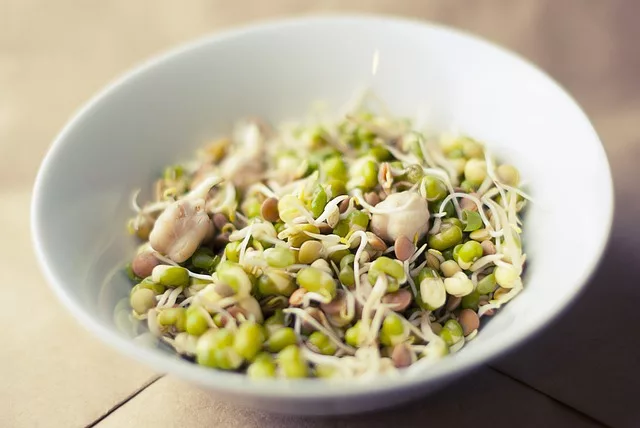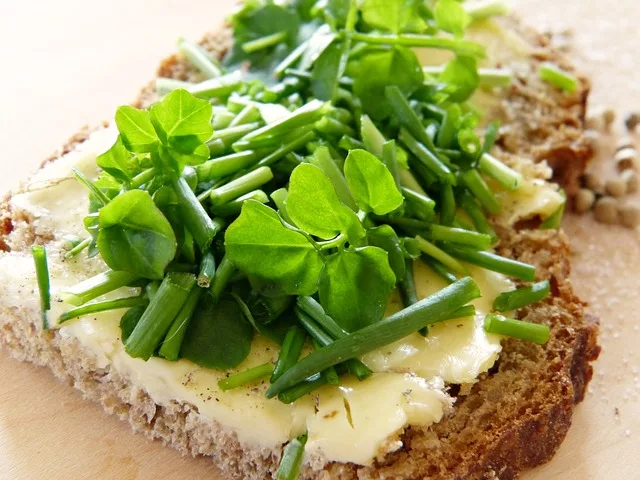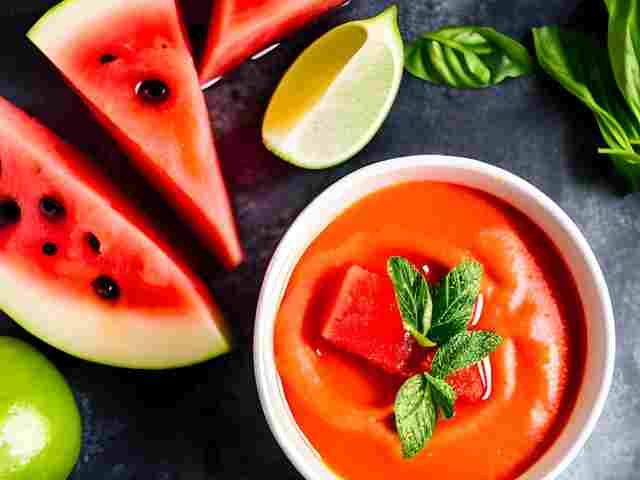Sprouts are young plants that have just started to grow from seeds. They are packed with nutrients and offer numerous health benefits. Sprouting involves germinating seeds and allowing them to grow into tiny plants before consuming them. In this article, we will explore what sprouts are, their health benefits, common grains used for sprouting, and provide a simple recipe to grow your own sprouts at home.
What Are Sprouts?
Sprouts are the early stages of plants that emerge from seeds. During sprouting, the seed’s dormant state is broken, and it begins to grow, resulting in a young plant with leaves or roots. Sprouts are typically consumed when they are one to two inches long, and they have a crisp texture and mild flavor.
Health Benefits of Sprouts
Sprouts are known for their exceptional nutritional profile and offer several health benefits, including:
- Increased Nutrient Content: During the sprouting process, the nutrient content of seeds significantly increases. Sprouts are rich in vitamins, minerals, antioxidants, and enzymes. They are particularly high in vitamin C, vitamin K, folate, iron, and fiber.
- Enhanced Digestibility: Sprouting improves the digestibility of seeds. It activates enzymes that break down complex carbohydrates, proteins, and fats, making them easier to digest and absorb.
- Improved Bioavailability of Nutrients: Sprouts contain increased levels of bioactive compounds, such as phytochemicals, that have antioxidant and anti-inflammatory properties. Sprouting also reduces the levels of anti-nutrients present in seeds, making the nutrients more bioavailable.
- Support for Overall Health: Regular consumption of sprouts has been associated with various health benefits, including improved digestion, enhanced immune function, increased energy levels, and reduced risk of chronic diseases such as heart disease and certain types of cancer.
Common Grains Used for Sprouting
Several grains and seeds can be sprouted. Some of the most commonly used grains include:
- Mung Beans: Mung beans are popular for sprouting due to their high nutritional value and quick sprouting time. They are rich in protein, fiber, vitamins, and minerals.
- Alfalfa Seeds: Alfalfa sprouts are mild-tasting and crunchy. They are a good source of vitamins A, C, and K, as well as minerals like calcium and iron.
- Broccoli Seeds: Broccoli sprouts are rich in antioxidants and contain a compound called sulforaphane, which has anti-cancer properties. They have a slightly spicy flavor.
- Lentils: Lentil sprouts are easy to grow and have a nutty taste. They are an excellent source of protein, fiber, and essential minerals like iron and folate.
Simple Recipe to Grow Sprouts at Home
Growing sprouts at home is a straightforward process. Follow these steps to grow your own sprouts:
- Choose your Seeds: Select the seeds or grains you want to sprout. Ensure they are organic and specifically labeled for sprouting.
- Rinse and Soak: Rinse the seeds thoroughly and place them in a bowl or sprouting jar. Cover the seeds with water and let them soak for the recommended time (varies depending on the seed type).
- Drain and Rinse: After the soaking period, drain the water and rinse the seeds. Use a fine-mesh sieve or sprouting lid to ensure thorough rinsing while preventing the seeds from escaping.
- Continue Rinsing: Repeat the rinsing process two to three times a day, ensuring the seeds are always moist but not waterlogged. Gently shake or swirl the container to distribute the seeds evenly.
- Harvest: After a few days, when the sprouts have reached the desired length, give them a final rinse and gently pat them dry. Harvest the sprouts by removing any seed husks or ungerminated seeds.
Store the sprouts in a clean, airtight container in the refrigerator. Consume them within a few days to ensure freshness and optimal nutrient content.
Sprouts are nutrient-dense, easy to grow at home, and offer numerous health benefits. Incorporating sprouts into your diet can boost your intake of vitamins, minerals, and antioxidants. Experiment with different grains and seeds to enjoy a variety of sprouts. Growing sprouts at home is a rewarding and cost-effective way to enjoy these nutritional powerhouses while ensuring their freshness and quality.
Image by tookapic from Pixabay
Fruits and Vegetables
-

Why Are Raisins A Naturally Perfect and Easy Snack
Raisins are a popular dried fruit that has been enjoyed for centuries. Derived from grapes, raisins offer a naturally sweet and chewy flavor that makes them a delightful snack on their own or a versatile ingredient in a variety of dishes. In addition to their delicious taste, raisins are packed with essential nutrients that contribute…
-

Watercress: A Nutrient-Packed Superfood for Vibrant Health
-

3 Delightful Ways to Enjoy Watermelon with Creative Recipes
-

Did You Know that Watermelons Are Healthy For You?
-

How to Savor The Surprising Health Benefits of Prunes
-

Sprouts: Nutritional Powerhouses and Simple Home Growing Recipe
-

10 Best Foods to Support Your Hormones for Balance








Leave a Reply